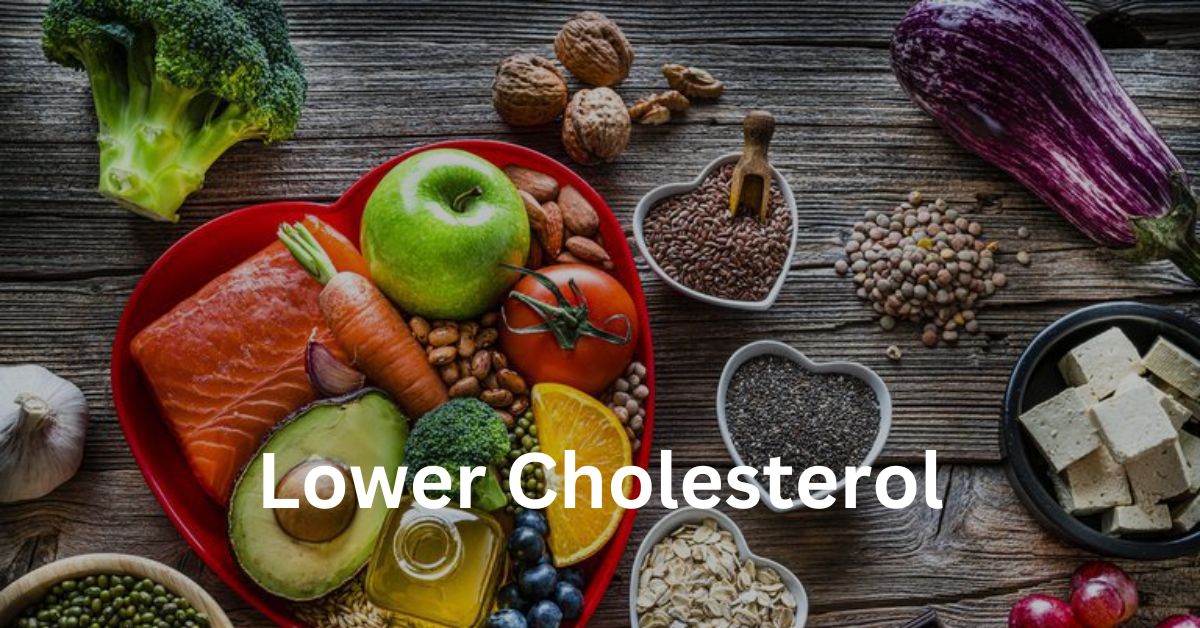Introduction:
How to Lower Cholesterol: Our blood contains chol, a fatty molecule that is essential for many biological processes. While it is necessary for the synthesis of bile acids, hormones, and vitamin D, high chol levels can have negative health effects, especially cardiovascular disorders. Maintaining heart health and lowering the risk of heart-related issues require lowering chol. This article will discuss efficient strategies to reduce chol naturally, with a focus on dietary modifications, prescription drugs, over-the-counter medicines, and the value of routine checkups.
Lifestyle Modifications to Lower Cholesterol:
Healthy Food Choices: Including foods that are good for your heart, such as fruits, vegetables, whole grains, and lean proteins, can have a big impact on your chol levels.
Regular Exercise: Exercise not only aids in the control of weight but also raises HDL cholesterol levels while lowering LDL_C.
Maintaining a healthy weight is crucial for efficiently controlling chol levels.
Refrain from Smoking and Drinking Too Much Alcohol Smoking harms blood arteries and reduces HDL_C while drinking too much alcohol can increase triglyceride levels.
The Function of Drugs:
Some people might need medication to adequately control their chol. This section will discuss cholesterol-lowering medications like statins, including their advantages, potential drawbacks, and usage considerations.
Natural Remedies and Supplements:
Plant sterols and stanols: Commonly included in fortified foods, these organic substances have the ability to prevent the absorption of chol.
Red yeast rice is an option for people who are intolerant to statins because of its reputation for decreasing chol.
Garlic and turmeric are two spices that have demonstrated potential for lowering cholesterol and promoting heart health.
Stress Effect on Cholesterol:
This section will discuss ways to reduce stress, including yoga, meditation, and deep breathing exercises, in order to support heart health. Stress can alter chol levels.
The Relationship Between Cholesterol and Cardiovascular Health
The importance of decreasing cholesterol levels to safeguard heart health will be highlighted through an understanding of heart disease and how cholesterol contributes to atherosclerosis.
The Value of Continual Exams:
For tracking success and making the required changes to lifestyle and treatment regimens, routine chol testing and monitoring are essential.
Age and Cholesterol: Individuals can adopt the proper measures to properly manage their chol by being aware of how their chol levels change with age.
Genetics and Cholesterol: A genetic disease called familial hypercholesterolemia impacts chol levels. Its management and repercussions will be clarified in this section.
Nutritional Guidelines for Lowering Cholesterol: Giving readers detailed nutritional advice, such as what foods to eat and what foods to limit or avoid, will help them make better decisions.
Planning meals to lower cholesterol will be easier if you use sample menus that include heart-healthy ingredients and adhere to recommended chol-lowering practices.
Exercise and Its Effect on Cholesterol: Providing information about the exercises that are most effective at lowering chol and their advantages will inspire readers to lead more active lives.
Tips for Remaining Compliant: Maintaining lifestyle changes can be difficult, so this part will provide inspirational advice and solutions to problems.
Understanding Good and Bad Cholesterol: Reader comprehension will be improved by describing the differences between HDL and LDL_C and their relative functions in heart health.
In summary, lowering chol is a proactive strategy for improving heart health and lowering the risk of issues related to the heart. People can lower their chol levels and live a heart-healthy life by adopting easy lifestyle adjustments, including heart-healthy diets, being active, and managing stress.
Read This: How to Boil Eggs | Egg Recipes
